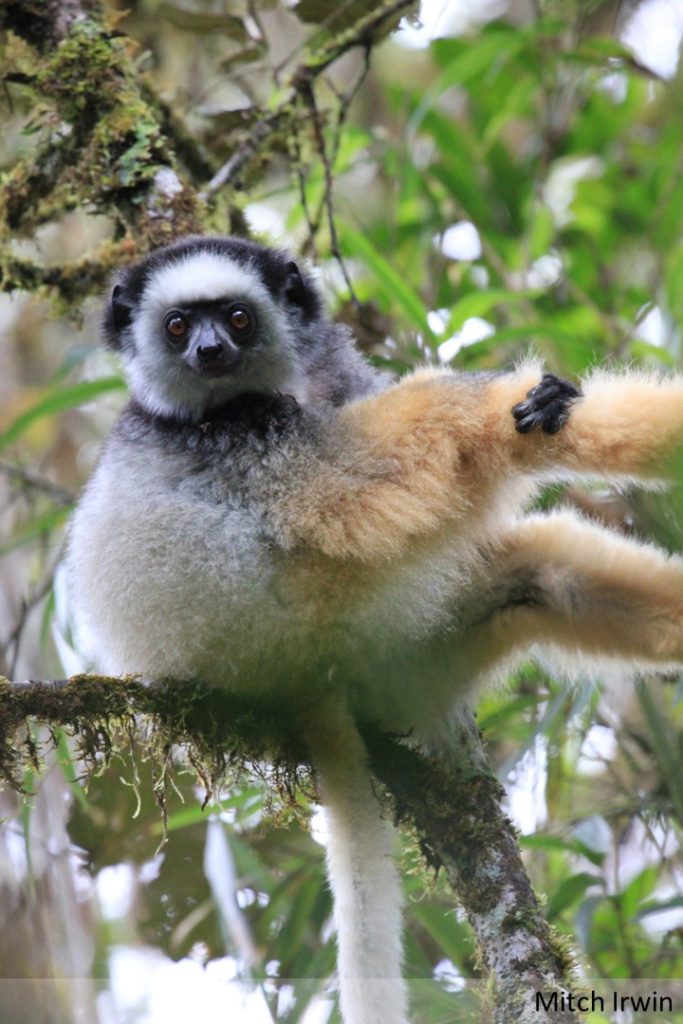
Mentoring and Scientific Collaboration Program
ASP is pleased to announce the creation of an exciting mentoring and scientific collaboration program that will greatly expand opportunities for our members to build their research networks, learn from colleagues, and help train the next generation of primate scientists. Our goal is to identify 30-40 ASP members who are willing to serve as mentors (see additional details about the program below). If you have an interest in participating as a mentor in ASP’s mentoring and scientific collaboration program, please complete the short mentor application form linked at the bottom of the page. If you have questions concerning the ASP mentoring program, contact Paul A. Garber (p-garber@illinois.edu).

Mentoring and Scientific Collaboration Program
As a society, ASPs greatest resource is its membership. There are many outstanding ASP scientists who have expressed interest in participating in a mentorship/research collaboration program working with graduate students or early career professionals from universities, zoos, primate centers, research and animal care facilities, sanctuaries, wildlife centers, and veterinary clinics in the U.S. and in primate range countries. This program will be a benefit of ASP membership and will serve to build a stronger professional primatological community.
Program Goals
The goals of the mentorship program are (1) to increase networking and research collaboration between ASP members and the broader primatological community, and (2) to help train the next generation of primate scientists.
Eligibility
All current, active members of ASP are eligible to participate in the mentoring and scientific collaboration program. Both mentors and mentees must be current, active members.
Award Criteria
Unlike other ASP award programs, the primary criteria for acceptance into the mentoring and scientific collaboration program is the willingness of both a mentor and an applicant to work together.
Program Plan

The first stage of the plan is to identify 30-40 ASP members, each of whom agree to work with one or two mentees. The anticipated benefits to mentors are the opportunity to engage in new research collaborations, participate in training the next generation of primatologists, and the potential to serve as a coauthor on publications that are a direct result of the program.
Each mentor is asked to create a brief biosketch and provide an abbreviated CV that they upload to the Mentoring Application Form (see link at bottom of page). If you are unable to mentor at this time but are interested in serving as a mentor in the future, additional opportunities will be available at a later date. Applying to be a mentor does not guarantee you will be paired with a mentee; you will be contacted if someone interested in being a mentee identifies you on their application.
The second stage of the plan is to pair mentees with mentors. This will be done on a rolling basis as those interested in being mentees apply to the program. Interested students and early career professionals applying to the program will submit a brief biosketch of their research/career interests, and include a CV. The mentee application form also includes mentee information such as primate species/taxa the mentee is/are studying/plan to study, their theoretical interests, and the goals they hope to accomplish in this mentorship program. These goals might include, but are not limited to, mentorship in hypothesis formation, mentorship in writing a publishable manuscript, mentorship in writing a research proposal, mentorship with research design, mentorship with data analysis, or mentorship in putting together a presentation for a national/international meeting. Each mentee would list in order of preference their top 3 mentors based on common research interests/expertise.
The first mentor listed in the application would be notified when a mentee’s application is received. That mentor will then have a period of two weeks to decide whether or not to work with that mentee. If the first mentor declines, then the second mentor will be notified, and so on. If no mentor agrees to work with the applicant, the applicant will receive a letter indicating that none of their selected mentors are available to work with the applicant at this time. If the mentee remains interested in being paired with a mentor, we ask that the mentee wait at least two months to resubmit their application, as additional mentors are added to the program.
Once a mentor agrees to work with a mentee, the nature of their working relationship will be left up to them. Such flexibility is needed so that mentors and mentees can work collaboratively in ways that best accomplish each of their goals.
Agreement
If the mentee is a student, then the mentees thesis advisor also would be required to be an ASP member and formally sign on to the agreement (the advisor would be required to sign the student’s application form indicating that the advisor approves of the student participating in the program). This is critical because we do not want to cause any conflict between the student and the advisor.
It also is important to stress (1) that the mentor is not a replacement for the student’s advisor, (2) that depending on the activities of the mentor, he/she should be invited to be a coauthor of any publication/presentation that arises from the collaboration, and (3), we encourage mentees to attend and present the results of this collaboration at our annual ASP conference.
The agreement between the mentor and mentee is anticipated to last for a period of up to several months, however, given the need for flexibility on the part of both parties, the length of the mentoring agreement will be determined by mutual consent. The agreement also can be extended based on the discretion of the mentor and the mentee. However, the mentoring agreement can terminate at any time based on the wishes of either party. At the end of the agreement, both the mentor and mentee will be asked by ASP to complete a brief survey form that would be used by ASP to assess the success of the mentor-mentee relationship, whether each felt their goals were accomplished, and to identify problems/changes that would improve the experience for both mentor and mentee.
Online mentor application submission
Visit the ASP Member Resources section of your profile page to submit a mentor application. The application process for new mentors remains open. Email Paul A. Garber (p-garber@illinois.edu) if you have any questions.
Mentors in the Program
Click here to access the list of mentors currently participating in the program (this list is only available to current ASP members).
Online mentee application submission
To submit a mentee application, visit the ASP Member Resources section of your profile page. The application process for mentees will remain open as long as mentors are available.